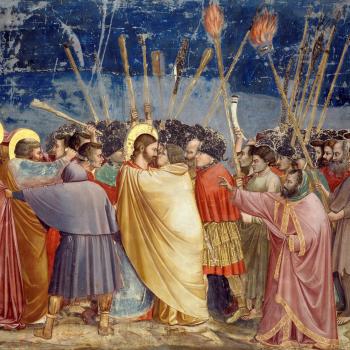Shows like “Kung Fu” and various other (Western) portrayals of the Awesome Badass Eastern guy who is always centered, cool, highly intellectual, and totally focused (in contrast to the barbarous western bigot) have been a favorite form of self-flagellation for post-Christians, embarrassed by the western tradition and ready to credit anything which tells them that eastern religion is cool and kind of Vulcan while Christianity is nothing but snake handling wahoos and toothless trailer park dwellers speaking in tongues and casting demons out of their vacuum cleaners. There is a deep eagerness among a lot of Westerners to believe that the grass is greener on the other side of the International Dateline.
Then, you read headlines like this:
Rumors of Demon Child Abduction Spark Run on Peaches in China
A rumor that spirits were seeking revenge for a damaged temple prompted a frenzy for peaches and firecrackers in northern Chinese cities
and it starts to dawn on you that there’s as much ridiculous superstition in the East as there is in the West. Of course, there’s also good stuff in the East’s religious traditions. But then there’s also some mighty good stuff in the West too, which is why so many Chinese are becoming Christian. It turns out the truth that God became Man is as shocking and wonderful to the Chinese as it used to be to us. However, for them it’s still news. For us, it *should* be news but… well, Chesterton says it best:
Now the best relation to our spiritual home is to be near enough to love it. But the next best is to be far enough away not to hate it. It is the
contention of these pages that while the best judge of Christianity is a
Christian, the next best judge would be something more like a Confucian.
The worst judge of all is the man now most ready with his judgements;
the ill-educated Christian turning gradually into the ill-tempered
agnostic, entangled in the end of a feud of which he never understood
the beginning, blighted with a sort of hereditary boredom with he knows
not what, and already weary of hearing what he has never heard. He does
not judge Christianity calmly as a Confucian would; he does not judge it
as he would judge Confucianism. He cannot by an effort of fancy set the
Catholic Church thousands of miles away in strange skies of morning and
judge it as impartially as a Chinese pagoda. It is said that the great
St. Francis Xavier, who very nearly succeeded in setting up the Church
there as a tower overtopping all pagodas, failed partly because his
followers were accused by their fellow missionaries of representing the
Twelve Apostles with the garb or attributes of Chinamen. But it would be
far better to see them as Chinamen, and judge them fairly as Chinamen,
than to see them as featureless idols merely made to be battered by
iconoclasts; or rather as cockshies to be pelted by empty-handed
cockneys. It would be better to see the whole thing as a remote Asiatic
cult; the mitres of its bishops as the towering head dresses of
mysterious bonzes; its pastoral staffs as the sticks twisted like
serpents carried in some Asiatic procession; to see the prayer book as
fantastic as the prayer-wheel and the Cross as crooked as the Swastika.
Then at least we should not lose our temper as some of the sceptical
critics seem to lose their temper, not to mention their wits. Their
anti-clericalism has become an atmosphere, an atmosphere of negation and
hostility from which they cannot escape. Compared with that, it would be
better to see the whole thing as something belonging to another
continent, or to another planet. It would be more philosophical to stare
indifferently at bonzes than to be perpetually and pointlessly grumbling
at bishops. It would be better to walk past a church as if it were a
pagoda than to stand permanently in the porch, impotent either to go
inside and help or to go outside and forget. For those in whom a mere
reaction has thus become an obsession, I do seriously recommend the
imaginative effort of conceiving the Twelve Apostles as Chinamen. In
other words, I recommend these critics to try to do as much justice to
Christian saints as if they were Pagan sages.











